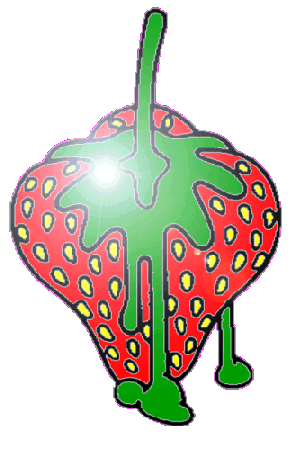
PART 3: AFTER THE BREAK
Part 1: Folk Club Days
Part 2: Electric Band
Part 3: After The Break
Part 4: Don't Say Goodbye
Part 5: End Of The Millenium
Part 6: Acoustic Odyssey
Part 7: Multiple Line-Ups
Part 8: 40 and Counting ...
Part 9: Hero arising and the big 50
Picking up the pieces
Hudson and Ford returned to the UK and quickly returned to the studio, producing a number 8 hit record "Pick Up The Pieces" under the name Hudson-Ford. The version released was actually the demo version, recorded just by the two of them. Recruiting various sessions players to support them, including Rick Wakeman from earlier days, and guitarist Mickey Keen and keyboard player Chris Parren (both later to join them on the road), the duo recorded "Nickelodeon", with Hudson moving out from behind the drum kit to play rhythm guitar. A tour was organised and a band recruited. In addition to Keen and Parren, they also brought in drummer Ken Laws, who they knew from their sessions days with Southern Music. Management followed previously effective tactics, setting up a showcase gig at the Royal Festival Hall, and sending out postcard invites to the influential.
Hudson-Ford established themselves as a live act both in the UK and via several tours of the US and Canada. They released two further albums with A&M - "Free Spirit" and "When Worlds Collide". By the time of the latter however, costs of touring had forced them off the road, and, without the live exposure keeping them in the public eye, their sales dwindled. Further singles had followed, but none reached the Top 10. Leaving A&M they cut one final album as Hudson-Ford for CBS, which took their music towards the mid 70s disco boom. Hudson and Ford later switched genres again, recording as quasi-punk band The Monks", scoring a surprise hit with "Nice Legs Shame About The Face". They recorded two albums - "Bad Habits" for EMI, and "Suspended Animation" for Polydor in Canada. The Monks albums picked up substantial sales in Canada, the latter going platinum, and justifying a sellout tour of huge stadium venues.
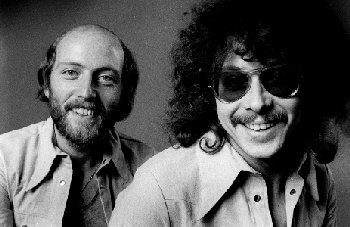 Hud and John
Hud and John
Shining on
Meanwhile, Cousins and Lambert had been holding auditions, recruiting ex-Renaissance keyboard player John Hawken (also in the Nashville Teens when they hit the charts with "Tobacco Road"), drummer Rod Coombes, previously with Stealers Wheel and Chas Cronk, a sessions bass player recommended to Cousins by Wakeman. The new line-up was transported down to Devon for the usual rehearsals and alcoholic entertainment, emerging to head into the studios before heading over the channel to play a short series of European dates. The new band was reportedly tighter and Cousins was reportedly extremely happy with the way the line-up had come together. The studio sessions produced a new single "Shine On Silver Sun", which though a return to the more recognised Strawbs sound, failed to set the charts on fire, despite an appearance on Top Of The Pops.
 Advert for "Shine On Silver Sun"
Advert for "Shine On Silver Sun"
A short US tour followed, with Cousins writing a major new song "Autumn" during the tour and previewing it at Harvard University. The band were back in Ivar Rosenberg's studios in Copenhagen, recording what would become Hero And Heroine. Dave's songs on the album continued the trend of plain speaking rather than flowery allegories begun with Bursting At The Seams, reflecting the bleak period he was experiencing after his marriage breakup. Members of the band were contributing to the development of the musical ideas: the title track, originally demoed to the band on banjo, became a powerful mellotron epic and "Round And Round" had a powerful synthesiser intro. Both Chas and Rod contributed tracks to the set, and John Hawken's instrumental "Heroine's Theme" at the start of "Autumn" was released as a single in response to demand from black radio stations in the US.
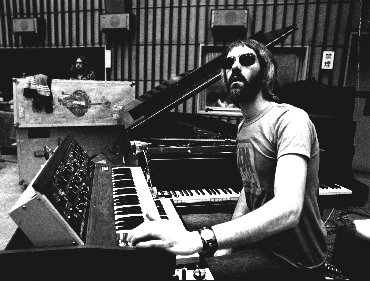 John Hawken
John Hawken
Hero and Heroine was released first in the US, and the band undertook a tour there to promote it. Opening at the Academy of Music, and then playing a three night residency at the Bottom Line, they effectively consolidated their already solid following on the East Coast, which remains today the bedrock of their US fan-base. Back in the UK, the album was scheduled for release in April, and a UK tour set up for the same month. The album garnered mixed reviews, the New Musical Express's in particular being astonishingly negative. The title track "Hero And Heroine" was released as a single, followed shortly after by "Hold On To Me", which had had good reactions on the tour; neither charted, however. John Hawken recalled that the UK tour seemed so flat, and the press response so unfriendly - a sharp contrast to their recent US experience. It is scarcely surprising that increasingly the band saw their future as being founded on North American success.
A third US tour followed, opening again at the Bottom Line, headlining for part of the tour, and then sharing the other half with Poco and King Crimson. Meanwhile, back in the UK, a retrospective album "By Choice" appeared, incorporating the tracks Cousins felt were the main milestones in the Strawbs' career. Whilst rare singles "Forever" and "Here It Comes" were included, "Part Of The Union" was a notable omission.
Chasing ghosts
In the autumn, Cousins and co. were booked in at the Manor to rehearse and record their next album. However, there were difficulties with Customs & Excise, who impounded the band's equipment for 10 days, which ate into the rehearsal time. On top of that, the pressure of nearly continuous touring had taken its toll, particularly on Cousins who collapsed and was taken to a London clinic to recover. As a result the album Ghosts took considerably longer than expected to record and its release was delayed until February 1975; there were also difficulties with the sleeve - the band had had a photograph of themselves superimposed over a photograph of the war memorial at Charterhouse, a suitably ghostly effect. However, the school objected to its use, so an alternative shot had to be found, delaying the album's release still further.
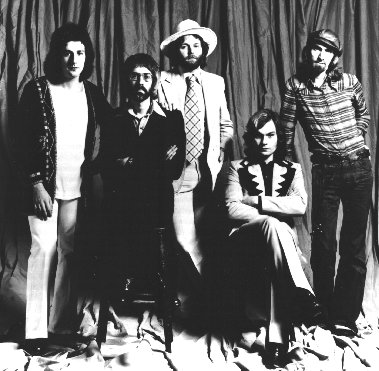 Ghosts promo shot
Ghosts promo shot
A projected tour of the UK nevertheless took place in November, which had mixed reviews from the UK press. By the end of 1974, Cousins admitted in an interview that the UK no longer figured very much in the Strawbs' plans - in the coming year they would be concentrating on the more welcoming American market, along with projected trips to Japan, Australia and South Africa. There would be a handful of UK dates towards the end of the year.
Ghosts contains a number of the tracks best-loved by the North American fans who were now the Strawbs' main support. The four-segment title track, written by Cousins whilst on the road, staying at a hotel in Indianapolis and the powerful "Life Auction" were both hot live favourites. The latter has Cousins dirge-like opening poem, set over a series of Hawken's piano discords, which segues into a slice of classic Strawbs instrumentation - Dave's thrashing 12-string guitar and plenty of power chords both from Lambert's lead guitar and from Hawken's keyboards.
"Grace Darling", recorded in Charterhouse School chapel, with a full choir and released as a single just before Christmas 1974, has been re-recorded twice since, firstly by Dave & Brian on Old School Songs and latterly on Ringing Down The Years by the full band. It also had a release for the French Canadia market with recorded lyrics as "Cherie Je T'Aime".
Another live favourite "Remembering/You And I When We Were Young" pays homage to Dave's childhood in West London, in and around the Old Deer Park in Richmond, with John Hawken's haunting theme wrapped around a classic Cousins' song, written some years previously, but never recorded until then.
Touring, touring, touring
Quite a few tapes of concerts on the band's first tour of the US in 1975 still exist, and give a good indication of the band's power, and the warmth with which they were received, particularly in their North American heartland. A&M Canada were particularly effective in supporting the band, and the tail end of the tour in early February took in a series of Canadian cities, with strong press coverage. Cousins had not brought his 12-string, which barred the ttile track "Ghosts" from the set, but the well-lit, carefully rehearsed concerts drew praise from reviewers, and the Strawbs' "poetic mellotron rock" went down a storm. In Toronto's Massey Hall, Cousins was moved to proclaim that the band had done the best gig of their lives, and the band were forced back onstage for a third unplanned encore of "Tears And Pavan".
Plans for Australia were cancelled in favour of further US touring, but the band did get to fly to Japan to appear live in Tokyo, and to record a TV broadcast, the first beamed out to all the islands which make up the country. The second US tour took in some of the Strawbs' developing markets, aimed at extending the band's reach outside the East Coast. After this tour, however, John Hawken left the band. There seems to have been a feeling within the band that the style should change again, and Hawken, though a stranger to the mellotron when he first joined the Strawbs, was now a leading advocate of the "gothic" approach.
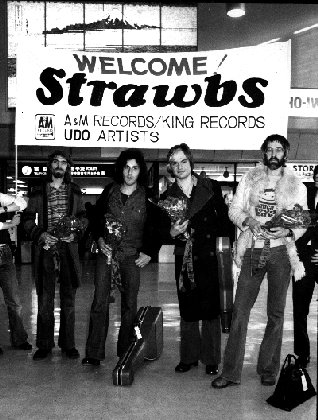 Well received in Japan
Well received in Japan
Nomadness
The Strawbs therefore carried on as a four-piece, recording their next album Nomadness with various guests on keyboards, including veteran jazz-rocker John Mealing, who, with Robert Kirby who had arranged various Strawbs songs in the past (most recently "Grace Darling"), became the Strawbs permanent keyboard players for the next few years (though they did not actually join the band, but were paid on a sessions basis even when performing on tour). Rick Wakeman also guested, on "Tokyo Rosie" where, amidst much drunken horseplay in the studio, he apparently performed the keyboard part completely in the nude. There was no real Cousins epic on the album, other than perhaps "Hanging In The Gallery" and the press and the fans in both the US and UK had mixed feelings about the album. Many wanted more in the same vein as the "big sound" of the two previous albums and were disappointed with Cousins lighter, more whimsical approach. As with From The Witchwood, the need to include tracks from other contributing band members also led to a feeling of directionlessness in the set, though Chas Cronk's "The Promised Land" with duet vocals from the band's two lead singers was a powerful and popular live number.
Nevertheless, the band were booked for their longest tour yet - a 10 week marathon. The tour was slick and professional, with the band segueing together numbers from various albums into longer pieces, and the two sessions players fitted perfectly, providing the band with perhaps the fullest sound yet. However, Nomadness, which was their last album for A&M Records, marking the end of their long relationship with the label, performed disappointingly at the cash tills, and the costs of the tour were horrendous.
The Oyster years
Three British shows followed at the end of 1975, well-received by Strawb-starved fans, though less so by the UK music press. A possible Spring tour was cancelled and Strawbs went into the studio to begin recording a follow-up to Nomadness with Tom Allom continuing in the producer's chair. These initial sessions ground to a halt, with Cousins asserting that what they had recorded sounded too much like everything else the band had ever done. After a while, the band hooked up with New York producers Rupert Holmes and Jeffrey Lesser, and set to to record a new set of tracks, this time written by Dave Cousins in collaboration with Chas Cronk. Many of the songs were written very quickly by the pair, often with Dave's lyrics set to musical scraps from Chas's store of licks, riffs and snatches.
A single "I Only Want My Love To Grow In You" was released on the Strawbs' new label - Oyster Records, the label set up by Deep Purple and distributed by Polydor - as a taster for the forthcoming album, and though it had phenomenal airplay, the single nevertheless failed to chart. Other high spots of the album Deep Cuts, which had a more rock-based feel than its predecessor, included Cousins' allegorical Western tale of the crucifixion "Beside The Rio Grande" and the classic "Simple Visions", recorded at least in part in the open air at the Manor - at the beginning of the track you can hear Cousins: "Hey me words have blown away."
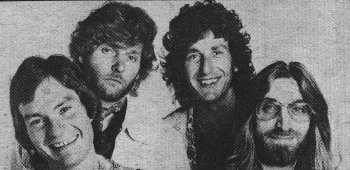 Core members Lambert, Cousins, Cronk and Coombes
Core members Lambert, Cousins, Cronk and Coombes
The new material was premiered at a massive rock festival at Cardiff Castle in July 1976. Cousins, was helicoptered in from another festival, the July Wakes folk festival where he performed the first of a series of solo gigs, which were eventually to lead to the Cousins & Willoughby partnership. A good deal of effort was put into relaunching the band both in the UK and North America, and the band undertook a dozen or so dates in the UK, and then a further substantial US tour in late 76/early 77 to promote the album there. All the reviewers commented that the material was much more commercially-oriented than previous efforts, and the Oyster press release acknowledged that with the comment that on this occasion there were "no songs to commit suicide to". Sales were up on Nomadness, and the album charted higher in the US, though, with punk beginning to emerge in the UK, even the Strawbs' new-found commercial approach wasn't going to be sufficient to direct much attention their way. Had they gone out and trashed their instruments and spat on the audience, the music press might have afforded them rather more attention.
As before, touring - particularly with two session keyboard players - was a heavy financial drain, and the decision was taken in early 1977 that, in order to restore the band's financial fortunes, management would bring the band off the road and record two albums in quick succession. The group headed off to Hilversum in Holland to record Burning For You, this time with Jeffrey Lesser as producer. Lesser was convinced that a hit single was crucial, and had developed the opinion that Lambert's more commercial vocals were more likely to provide the key than Dave's. In the studio, Chas Cronk played a chord which took everyone's fancy and within 20 minutes "Back In The Old Routine" was in the can. It was released as a taster for the forthcoming album, but failed to make much impression though it did receive lots of airplay. The album included "Cut Like A Diamond", for many years the opening track of the band's live set, and "Alexander The Great", written about the Strawbs' music press critics.
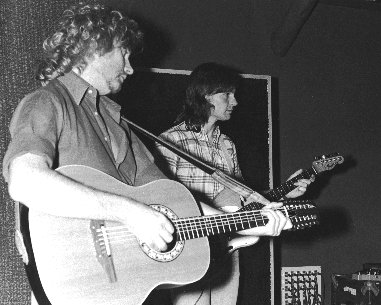 The two Daves in the studio
The two Daves in the studio
Almost before the vinyl had set on Burning For You, the band were back in the studio to record what was to be their last studio album for many years, Deadlines, without Rod Coombes however, who had departed and was replaced by Tony Fernandez. The Strawbs also parted company with the Oyster label and moved over to Arista Records.
Deadlines and dramas
Once again the production was handled by Jeffrey Lesser. Whilst the sessions for Deadlines, held in Dublin, were laid back and productive, disaster struck at the mixing sessions in Utopia Studios in London. Somehow half the master tapes were damaged and the band had to re-record four tracks entirely and do overdubs on the remainder, so that the recording process took far longer than expected. The set was even more rock-oriented, with "No Return" and "The Last Resort" - excellent examples of the Strawbs' ability to rock with the best of them - "Deadly Nightshade" and the quieter Cousins classic "Sealed With A Traitor's Kiss" being the highlights.
Though John Mealing and Robert Kirby both played on Deadlines, for the tour which followed, they were replaced by young keyboard player Andy Richards, their first full member on keyboards since the departure of Hawken. The tour took in mainly college venues, and the support for all dates was Arista label mate Roy Hill. The tour climaxed with a major London gig at the Hammersmith Odeon, which was to be Dave Lambert's last live appearance with the band. Three singles were released from the album, "Joey And Me", "New Beginnings" and "I Don't Want To Talk About It" (though UK release of the latter is unconfirmed); the last two both featured Lambert's vocals. Cousins returned abruptly in April 1978 from a promotional tour in the U.S. to attend Sandy Denny's funeral.
In early Summer 1978, preparations began for a further Strawbs album, this time with old friend Tom Allom back in the producer's chair. Galvanised by Andy Richards' keyboard ability, the band went back into the studio to rehearse and record "Something Or Nothing". However, Dave Lambert was heavily involved in recording his solo album at the same time and when there was a clash between Lambert's recording commitments in London and band rehearsals in Devon, Lambert put his solo project first and left the band. Interim sessions with guitarist Miller Anderson (who had played on Dave's solo album) produced a couple more tracks, and the album was finished off later that year with guitarist Jo Partridge. However, both the deal with Arista and the band's long association with their management had collapsed. Despite having the Heartbreak Hill album in the can, the Strawbs, dispirited and without a record label, put band activities on hold and concentrated on other things.
 Cartoon of the post-Deadlines band
Cartoon of the post-Deadlines band
Folk roots
After a few trial gigs over the last couple of years Dave Cousins had announced his wish to go back to his folk club roots. With an enforced layoff from the band, he joined up as an acoustic duo with an old friend from the White Bear days, Brian Willoughby, who had played guitar with Mary Hopkin and Roger Whittaker amongst others. New manager Kevin Wyatt-Lown set up an impressive country-wide tour, which kicked off in January 1979, culminating in a London gig in London's Collegiate Theatre. Later in 1979, Dave and Brian released an acoustic album, Old School Songs, which featured one side of studio material and another recorded live at the Exmouth Folk Festival. A further live album, tentatively entitled Ringing Down The Years (the title was later appropriated for Strawbs' 1991 album) was announced and indeed recorded, but never emerged, through no fault of Dave and Brian, I hasten to add. This duo exposure together with a second tour in late 1979 established Cousins and Willoughby as a permanent part of the folk club scene, and the duo continue to perform duo gigs to this day. Meanwhile, other band members took up other position, Chas and Tony joining Roy Hill's touring band. Tony Fernandez also began a long-term association with former Strawb Rick Wakeman.
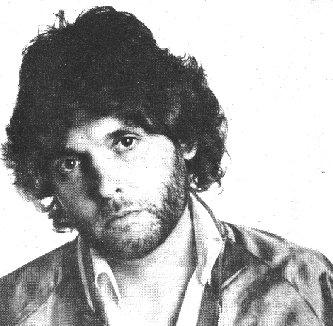 Promo photo for Dave's acoustic tour
Promo photo for Dave's acoustic tour
Indian summer
The band re-formed in Autumn 1979 for a festival at Port Rush in Northern Ireland, with Brian Willoughby taking over the lead guitar slot. His first recording with the band was the rare single "The King"/"Ringing Down The Years", pressed in late 1979 on manager Wyatt-Lown's own LO label. A 13-date tour ensued in February 1980.
In the meantime, the Strawbs negotiated with Elton John's Rocket record label for the release of Heartbreak Hill. However, just as a deal was on the horizon, in July 1980 Dave Cousins made the shock announcement that he was leaving the group he founded for a career in local radio. At Dave's suggestion and with his blessing, the remaining Strawbs recruited Roy Hill as replacement vocalist, who brought with him guitarist John Knightsbridge and sax player Bimbo Acock from his own touring band. This version of the band played only two gigs in July 1980 and realising that Strawbs without Dave was a non-runner, called it a day.
It seemed that that was the end for the Strawbs .....

